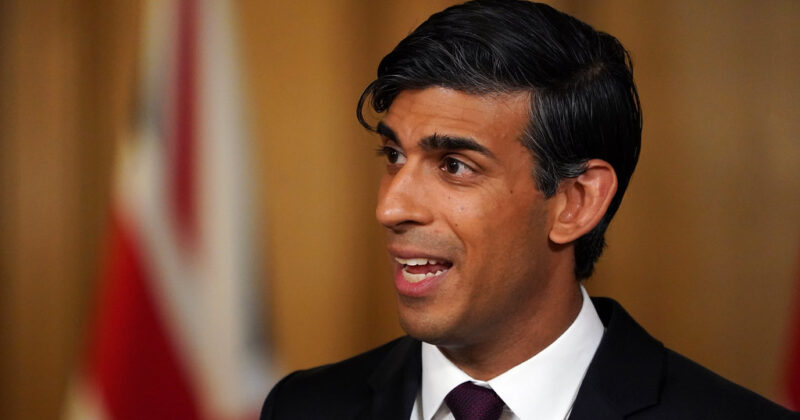Greece: the prospects for a revolution
 Greek Prime Minister George Papandreou gives way to a coalition government as the EU leaders attempt to force through more cuts and austerity. But the Greek people are fighting back, writes Martin Suchanek
Greek Prime Minister George Papandreou gives way to a coalition government as the EU leaders attempt to force through more cuts and austerity. But the Greek people are fighting back, writes Martin Suchanek
THE 48-HOUR general strike on 19 and 20 October was the biggest since Greece’s economy was effectively placed under a dictatorship of the leaders of the “troika” of the European Commission (EC), the European Central Bank (ECB) and the International Monetary Fund (IMF).
Greece’s PASOK prime minister George Papandreou’s desperate ploy of calling a referendum on the latest cuts package was immediately vetoed by the irate duo – Sarkozy and Merkel – who summoned him to Cannes. If the referendum went ahead, they made clear, the loans would stop, and if the Greeks dared vote “no” then they would be out of the Eurozone.
Papandreou faces not only the Herculean task of trying to force through Sarkozy and Merkels’ “shock therapy” against the overwhelming opposition of the Greek people, without a shred of a democratic mandate. He also faces the unprincipled centre-right opposition party New Democracy (ND), led by Antonis Samaras.
Previous ND governments ran up gigantic debts to bankers of Frankfurt, Paris, London and New York, and ND are even more wholeheartedly in favour of the austerity plan than Papandreou is. They are now demanding that he resign and call an election.
The appalling fact is that there is no party with both the electoral strength and political courage to oppose the devastation of social and economic life that the austerity plans are wreaking on this small country. The ND politicians hope that the majority of Greeks, who oppose the cuts, will nevertheless give them a majority that will implement them more resolutely than Papandreou can.
To such a impasse has the “home of democracy” come. But it is the so-called democratic politicians of Europe who insist that the Greek people – from public and private sector workers to impoverished small farmers – must not be allowed any say over the looting and plunder of their country.
Papandreou’s only answer is a desperate attempt to manoeuvre ND into a national unity coalition, or to back an emergency government of “independent” experts, headed by a former European Bank chief. This would be a government even more remote from the pressure of the people – government of the bankers for the bankers by the bankers.
The government in the service of the banks
Greece shows many countries of Europe their future. The ironically named EU “rescue package” being implemented there is a historically unprecedented experiment, totally under the political supervision and control of the “troika”. The Greek government has to sit up and beg for every single euro. It has to confess that all the measures taken so far were too little, that more and yet more cuts and sell offs of public assets must be introduced.
On 20 October the Greek parliament agreed further cuts in public sector salaries of up to 50 per cent and effectively tore up all wage contracts in the private sector, leading to wage cuts of up to 20 per cent in real terms.
The dictates of the “troika” are in fact sharpening the crisis. But the Germany and France, the EU’s leading powers, are not “rescuing” Greece but their own banks, pension funds and other institutional bondholders. They are using the crisis to establish a dictatorship of international finance capital, of the banks and giant industrial corporations, over the EU.
Their problem is that the Greek state could collapse under the burden of debt, with unforeseeable consequences, not just for the Eurozone but also for the world economy. With Spain and Italy also facing state bankruptcy, writing off half the Greek debt was unavoidable to ensure Greece can continue paying and servicing the remaining half.
The harshness of the “rescue” is not only the means by which will Greece be forced into much greater, almost colonial, dependence. It will also strengthen the centralisation of EU finance policy under German and French control, turning the EU from an alliance of states into an imperialist federal state, under German hegemony with a French “partner.” Of course, the big issue is: will the patients survive the shock treatment? And will the doctors?
Fortunately there is another actor on the stage, one that can avert the impending tragedy: the Greek working class.
Rising class struggles
Over the last five years the country has experienced a wave of struggles. First there was the student movement of 2006 to 2007, with occupations and riots even before the world economic crisis broke. Then there was an uprising of the youth in December 2008, after the police murder of 15-year-old school student Alexis Grigoropoulos. This led to the collapse of the ND government, new elections and the electoral victory of the nationalist-populist PASOK.
Since 2009, there have been 13 general strikes and many sectional strikes. Inspired by the revolutions in Egypt and Tunisia and the occupation of public squares in Spain, a “movement of the indignant” developed in Athens and other Greek cities. Finally, in recent months there have been long strikes in transport and in the public sector. Time and again, ministries and offices were occupied. In many districts public sector workers, in protest against the cuts, have stopped carrying out functions like the sale of tickets on public transport.
Alongside the occupation of the squares, a series of workers’ direct actions have favoured the establishment of new mobilising structures on a local or workplace basis: action committees that draw in new activists and strengthen the mobilisations for the demonstrations.
The governing PASOK party has suffered a massive exit of members and a devastating loss of support in opinion polls, now down to about 15 per cent. Even though the two biggest trade union confederations still stand close to PASOK, several of their sectional trade unions have formally withdrawal their support.
This has put wind in the sails of the left parties. Together, they are receiving about 25 per cent support in opinion polls. It says a great deal about the situation that 50 per cent say they are undecided. These polls reveal an important aspect of the overall political situation: social polarisation. At the moment, this is benefiting the left in whom the population, in particular its more active sections, are placing their hope.
But crisis-induced polarisation cannot last indefinitely. Nor will it always favour the left; the forward impetus of the mass movement can only last for a limited time. Either it will successfully resolve the crisis by revolutionary means, or continual impoverishment will demoralise the people. This will lead to confusion among the masses on the one hand, and the radicalisation and advance of the counterrevolution as a result of increasing hopelessness on the other. In Trotsky’s words the wine can turn to vinegar. The alternative is between revolution and counterrevolution.
For the generalisation and centralisation of the councils
The district committees, and the action committees in the factories that have been created in recent months, must be generalised and built into full-scale workers’ councils, presenting an alternative power to the state apparatus. It is not enough only to build more and more of these at the local level; it is necessary to coordinate them on a national level, on the basis of direct election and permanent recallability. A national congress of delegates from the existing district and factory committees, from the occupation assemblies, and from the schools and universities should be convened as quickly as possible.
It must not only discuss and decide upon a programme for the overthrow of the austerity government, whoever forms it, but also decide on what to replace it with. It is precisely here that the fundamental weaknesses of the emerging Greek revolution can be seen. The overthrow of the government, even the idea of an uprising, is on everyone’s lips. What is missing is a clear perspective not just of how to bring down this government, but what should happen afterwards.
Unlimited general strike!
The burning necessity is an all-out unlimited general strike. This demand must be made on the big trade unions: ADADY and GSEE BC and ABC and PAME, which is close to the Greek Communist Party (KKE).
But a wait for the say-so of the union tops and reformist party leaders will be a long one. The strike committees, assemblies and the embryonic workers’ councils must start mobilising now for all-out strike action – mass political strikes – to block the cuts and bring down any government that tries to implement them. This will require self-defence organisations built by the unions, youth groups and the existing stewards’ organisations of the various left groups.
The central political demands for the movement now must be an end to the austerity packages, the cancellation of debts (including those of local government) and the expropriation of the banks under workers’ control. These measures all point in one direction – transition to a democratically planned economy. They can only be implemented by a workers’ government, one based on the organs of struggle created by workers and youth, an alternative power which can break up the capitalist state apparatus with its police and military and replace it with council democracy and the armed people.
The call to take the course of an anti-capitalist workers’ government must be made to all left parties: the KKE, SYRIZA (a left reformist offshoot of the KKE), Antarsya (a federation of revolutionary groups) and the trade unions.
To fight for such a strategy, a conscious revolutionary leadership, and therefore a new revolutionary party, is the key question of the Greek revolution today. Today there are in the Greek movement a number of groups and parties and alliances that waver between reformism and revolutionary Marxism. These groups more or less openly express the need for a revolutionary change. Most of them, unlike the reformists and anarchists, recognise that the question of workers’ political power must be posed and answered. It is high time for them to unite on the basis of a revolutionary action programme.
• This is an edited version of a longer article on fifthinternational.org






